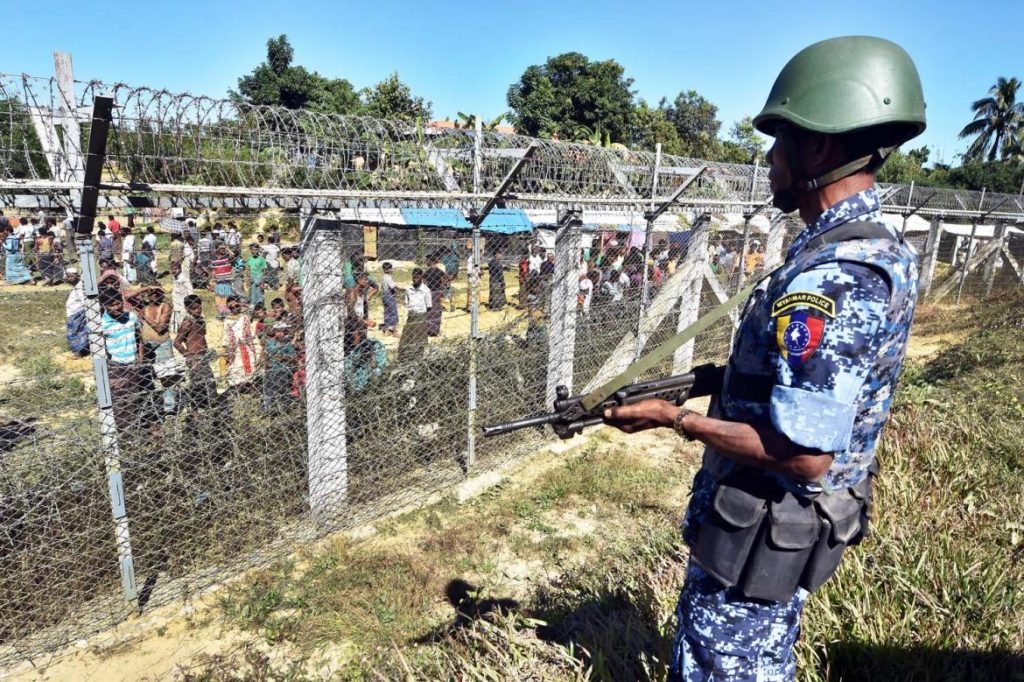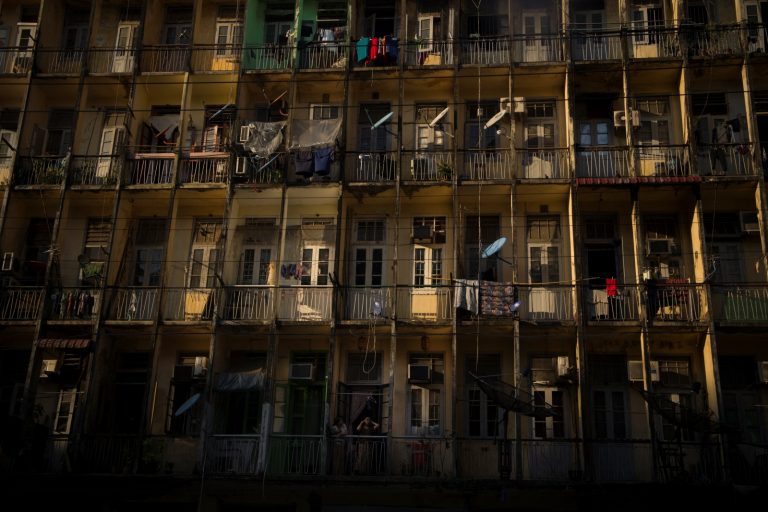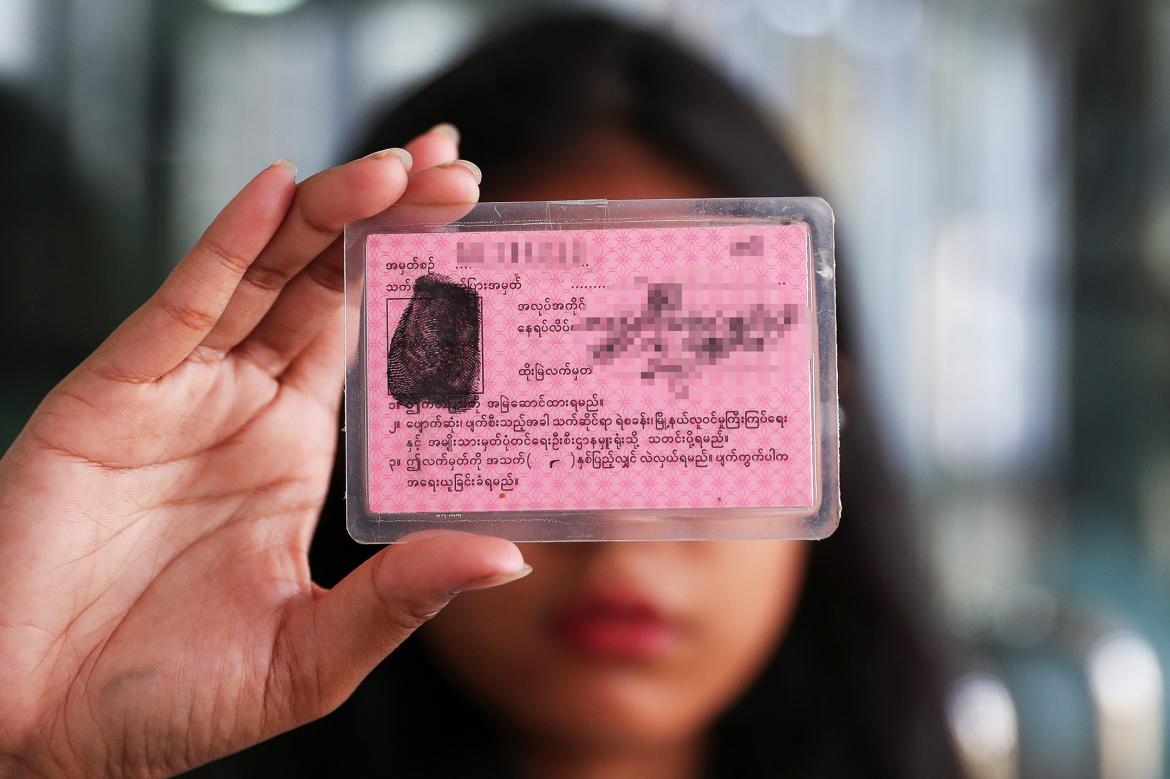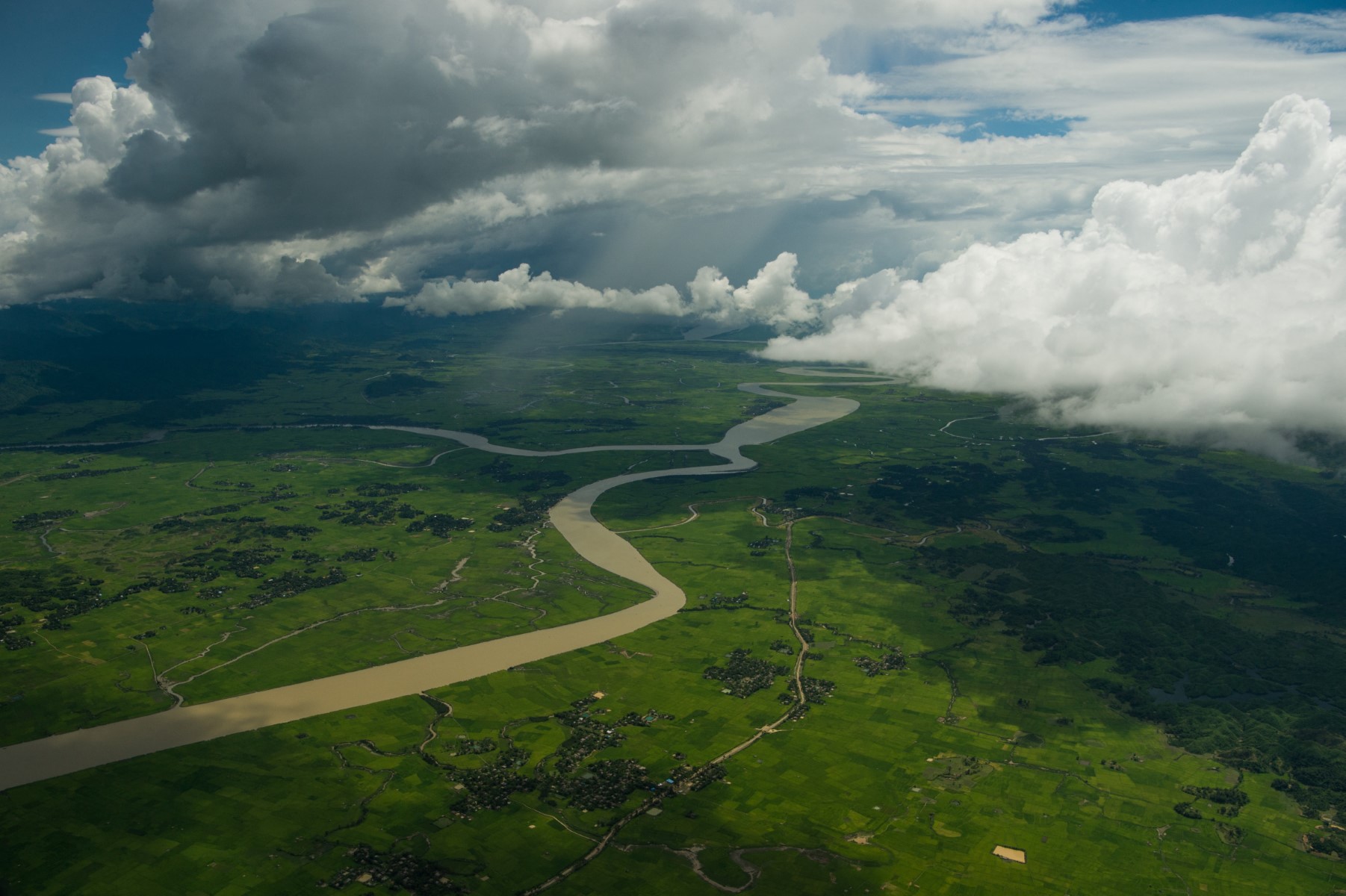Dialogue between the Rakhine and Rohingya communities is essential to achieve a sustainable solution to an increasingly complex crisis.
By MYO SANN AUNG | FRONTIER
CONFLICTS MOTIVATED by religious and ethnic intolerance have made Rakhine State feature prominently on the radar of the international community. Some regard the situation as a threat, while others see it as an opportunity. There is no one-size-fits-all solution to the Rakhine crisis: its resolution will require compromises, including on issues such as rights, and it will take time.
Tireless efforts and considerable resources have been devoted by national and international entities to tackle the problem but there has been little progress. Although the Myanmar government has tried to downplay the seriousness of the problem by adopting an “out of sight, out of mind” attitude, global attention – and pressure for a solution – has been intense.
The communal violence that erupted in Rakhine in May 2012 was triggered by the rape and murder of a Rakhine woman but the roots of the violence between the Rakhine and Rohingya communities were deep. The crime unleashed long-simmering tensions and the killings and arson displaced tens of thousands of Muslims, most of whom were herded into camps.
The situation festered until October 2016 when a militant group, the Arakan Rohingya Salvation Army, attacked security posts near the Bangladesh border. A larger-scale attack occurred in August 2017, and the military responded with a massive operation that sent more than 700,000 Rohingya fleeing to safety in Bangladesh. Rakhine once again dominated international news headlines. Although everyone in Rakhine suffered as a result of the violence, the ordeals of the refugees were unthinkable.
Support more independent journalism like this. Sign up to be a Frontier member.
Why has progress in Rakhine been so elusive despite years of engagement and hard work? Because too much attention has been devoted to diagnosing symptoms rather than focusing on the root cause. Repatriation will be a sticking plaster rather than a cure unless returnees and host communities make informed, voluntary decisions about how to live together with dignity and security.
The diversity of opinion about the cause of the problem and about the best way to move forward are dashing what tiny hope exists for reaching a solution. Humanitarian needs versus national security, human rights versus the national interest, and global norms versus local resistance to diversity are the zero-sum oppositions that define the debate over Rakhine between national and international actors.
The Arakan National Party dominates politics in Rakhine State. In the 2015 general election, the ANP won 22 of the 35 elected seats in the 47-member Rakhine Hluttaw, in which the National League of Democracy won nine seats. The ANP is also the third-largest party in the Pyidaungsu Hluttaw, the national legislature. The party was aggrieved when the NLD appointed one of its own members, U Nyi Pu, as chief minister of Rakhine State after the 2015 election.
The ANP had called in the Pyidaungsu Hluttaw for Tatmadaw reinforcements in northern Rakhine to protect civilians after ARSA attacked security posts. However, it is rumoured that the ANP also sought talks with the NLD to discuss adopting a political solution rather than a military response to the escalating crisis, though the meeting did not place. A member of the ANP’s central executive committee said the NLD had rejected the overture because it did not regard the ANP as a dialogue partner despite them being, in his words, the “democratically-elected leaders of Rakhine State”.
There was huge support among the Rakhine for the reinforced Tatmadaw presence in the state. A Rakhine man said he welcomed the Tatmadaw presence because he could live without fear and expressed gratitude that it had driven away the Rohingya, who are widely regarded as foreigners who should be expelled.
A well-propagandised notion is that Muslims could take over Rakhine land via population growth; fearful Rakhine point to the fact that, prior to their fleeing to Bangladesh en masse, Rohingya comprised more than 96 percent of the population in the townships of Maungdaw and Buthidaung near the border. This Muslim population was made denser by the withholding of citizenship and associated denial of freedom of movement, which confined them to this northern enclave.
A survey conducted by the Arakan CSO Network after the most recent Rohingya exodus found that many Rakhine in Maungdaw and Buthidaung felt insecure about living with Rohingya. Others said there were fewer problems after the Rohingya left.
The current level of polarisation is hard to overstate. In seeking a solution in this context, the real challenge consists of how to engage both the Rakhine and Rohingya communities in a process that ensures that their own ideas feed into implementation.
The future of Rakhine State is in the hands of both communities, who should have the power to decide how to live together in harmony and with dignity. The two communities share a rich history of interdependence and exchange in politics, trade and culture. However, a revival in harmonious relations will only be possible when democratically elected leaders from both communities meet for a dialogue premised on principles of diversity and solidarity.
If the international community wants to effect real change in Rakhine, it must work equally and equitably with both communities, who have suffered under the same system. Continuing humanitarian aid and development assistance will be essential. The latter can help existing and former residents of Rakhine enjoy their basic political rights.
But more than this, progress depends on a genuine dialogue, which must take place without the interference of political parties, government and the international community.
There is deep concern among the people of one of Myanmar’s most impoverished states that they will continue to be marginalised by high-level domestic and international efforts to address Rakhine’s problems. This situation risks a fresh upheaval that would tear Rakhine and its people even further apart.







